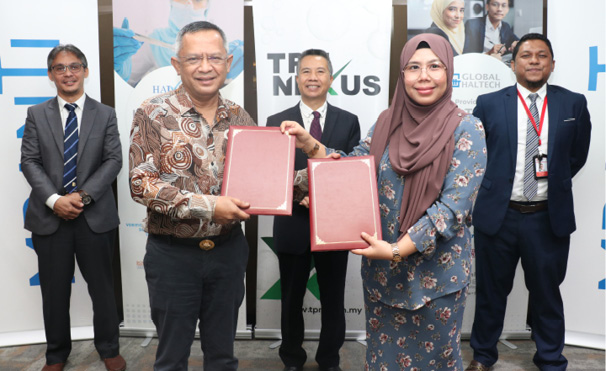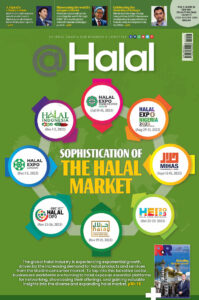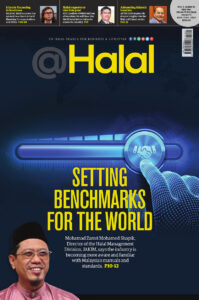Global Haltech Sdn Bhd (GH) made its 2022 international business debut by collaborating with a foreign Halal Certification Body and a local R&D and manufacturing-based company.
The objective of both Memorandums of Understanding (MoUs) is to develop and further strengthen the SOP and integrity of the halal supply chain in Vietnam.
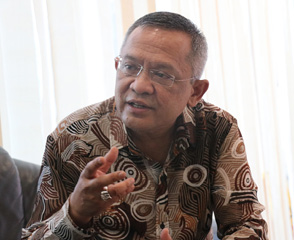
The first Memorandum of Understanding (MoU) exchange ceremony was between Global Haltech Sdn Bhd, represented by its CEO Hasniza Ramli, and Vietnam Halal Centre (VHC), represented by Ramlan Osman, the Founder cum CEO.
The second MoU exchange was between Global Haltech Sdn Bhd, represented by Hasniza, and TPM Nexus Sdn Bhd (TPMN), represented by its Acting General Manager, Muhamad Husni Md Zain.
The MoU ceremonies on Jan 12 were also attended by the Vietnamese ambassador to Malaysia, Nguwen Hong Son, and Chairman of Global Haltech Sdn Bhd, Nor Amin Mohd Noor.
Global Haltech & Vietnam Halal Centre
Global Haltech will focus more on halal related services like training, coaching, and halal analysis and verification.
VHC, which actively promotes halal certification and halal training and coaching for industries in Vietnam, will start to educate and encourage halal science as part of the halal certification process.
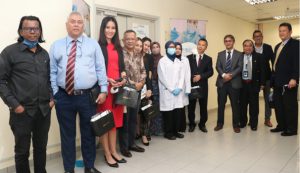
As such, VHC will be focusing on halal market demand and industry networking in Vietnam. Thus, the scope of collaboration between both parties shall involve:
• Organising halal programmes and training to industries in Vietnam mostly on awareness and importance of halal science elements towards halal certification.
• Establishing and introducing halal analysis and verification of ingredients and finished products to Vietnamese industries as part of the halal certification and monitoring system.
• Setting up an e-commerce platform for Vietnam’s halal-certified product to penetrate Malaysia and the global market.
• The development of future halal related projects that benefit both consumer and halal industry players in Vietnam.
“We will see a lot more halal certified products from Vietnam, and it will be more ready and trusted to penetrate global halal market once halal science is exposed among their industries,” said Nor Amin.
“This is because halal science is accepted globally in the halal supply chain as a tool of halal integrity measurement, especially in halal food sectors.”
According to Ramlan, more than 500 Vietnamese local industries are interested in halal, with tens of thousands of products potentially penetrating the halal market.
“Therefore, halal science elements seem vital to ensure all products shall comply and meet the actual concept of halal, which is halalan thoyyiban,” said Ramlan.
“We need to continuously educate and give awareness the importance of halal science so that the risk of products in the market that failed to meet the requirement will be gradually reduced.”
He shared VHC had also partnered with Institute for African and Middle East Studies (IAMES). Together, they will develop and operate the Halal Center of Excellence in Hanoi, Vietnam.
“Collaboration with government agencies such as IAMES allows us to penetrate the Vietnam market and promote and do halal branding more efficiently.”
Supporting technology-based companies
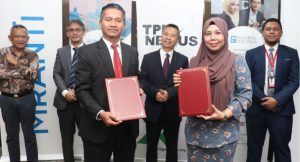
TPM Nexus (TPMN), one of the subsidiaries under Technology Park Malaysia Group, is a biotechnology-based product processing and manufacturing company mandated to support local product development from formulation, prototyping, lab analysis, testing, and up to commercialisation.
It has been assisting SMEs for years in product manufacturing through its big scale manufacturing facility located in the northern area of Malaysia and holding an R&D lab equipped with sophisticated and high-end laboratory facilities located at TPM Bukit Jalil.
As the strength of TPM Nexus is more on R&D lab facilities and international scale of product manufacturing, the scope of collaboration between GH and TPMN will cover:
• A development of a R&D programme of halal method analysis using sophisticated and high-end lab facilities in establishing a fast and efficient method for the halal verification process.
• Establishing and initiating R&D projects in producing critical and highly demanded halal ingredients (food and cosmetics) for local and global industry needs.
• A development programme on market survey, trade & commercialisation for global market engagement towards establishing potential halal-based products and ingredients centre.
• Jointly organise relevant human capital programmes and events on but not limited to seminars, exhibitions, conferences and workshops to promote halal related products and activities.
“The collaboration between TPMN and GH will focus on developing the R&D programme by leveraging our high health facilities to establish fast and efficient methods for the halal validation process,” said Muhamad Husni.
“Through this partnership, we are enabling the initiation of R&D initiatives to produce critical and in-demand halal ingredients with local and global industry needs.”
He also noted the collaboration between GH, TPMN and VHC provided an opportunity to identify Vietnam’s halal market demands and requirements, thus allowing TPMN to guide and promote local SMEs and products to penetrate the Vietnamese market.
“At TPMN, we want to ensure that R&D programmes and projects are not limited to the lab and prototyping stage. We want to ensure developed products can be commercialised locally and globally.
“As such, we appreciate the assistance and support from the Vietnam Embassy in providing guidance or green lane for Malaysian local companies to be in Vietnam,” added Muhamad Husni.

